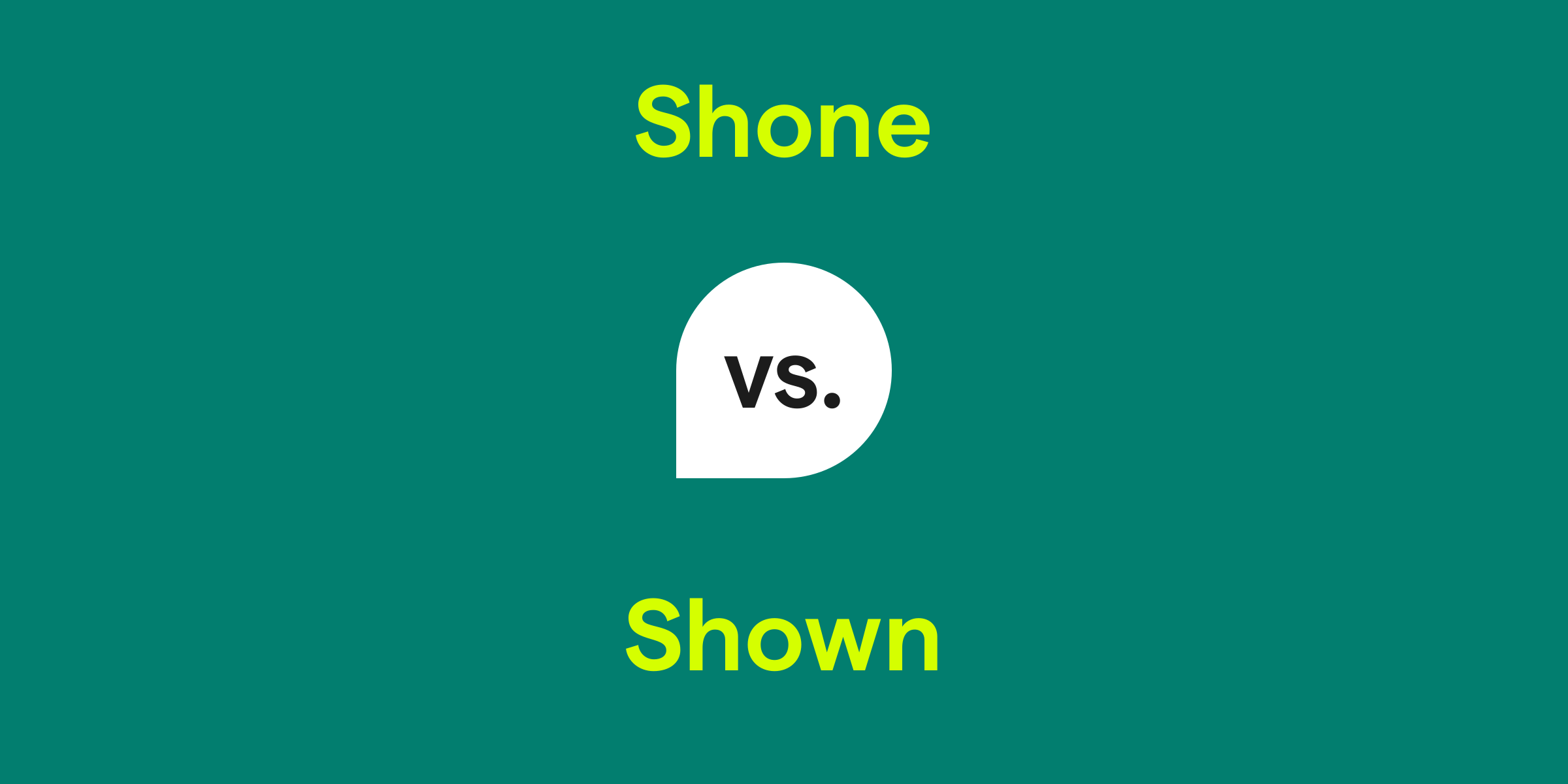Shone vs. Shown: What's the Difference?
Understanding the difference between shone and shown is crucial for proper English usage. Shone is the past tense and past participle of the verb 'shine,' meaning to emit light or to be bright. It is typically used when referring to something that gave off light or was bright in the past. Shown is the past participle form of 'show,' which means to display or present something. It indicates that something has been revealed or exhibited to others.

How do you use the word shone in a sentence?
Use shone when you need to describe something emitting light or appearing bright, particularly in the past. This term can apply to natural or artificial sources of light. It can also imply that someone or something stood out due to excellence or achievement.
Examples of shone in a sentence
- The moon shone brightly through the gaps in the curtains, casting a silvery glow on the room.
- During the talent show, her voice shone, mesmerizing the audience.
- He shone a flashlight into the dark attic, searching for the old photo albums.
How do you use the word shown in a sentence?
The word shown describes the act of displaying, revealing, or demonstrating something and is suitable when you want to convey that someone has been presented with information or items. Typically, you would use shown in situations where proof, explanation, or a demonstration has been offered.
Examples of shown in a sentence
- The documentary has been shown in festivals around the world and has received critical acclaim.
- She has shown great improvement in her piano playing over the last year.
- Despite all the evidence shown to the jury, the verdict was still not clear.
Shone and shown definition, parts of speech, and pronunciation
Shone definition:
Shone is defined as the simple past tense and past participle of 'shine,' which means to emit light or to be luminous. It can also describe someone or something excelling in performance or appearance.
Shone parts of speech:
Shone pronunciation:
Shone is pronounced as /ʃoʊn/, rhyming with 'cone' and 'alone.'
Shown definition:
Shown is the past participle form of the verb 'show,' used to describe something that has been revealed or presented as evidence or proof.
Shown parts of speech:
Shown pronunciation:
Shown is pronounced as /ʃoʊn/, identical to 'shone,' rhyming with 'cone' and 'alone.'
Shone is defined as the simple past tense and past participle of 'shine,' which means to emit light or to be luminous. It can also describe someone or something excelling in performance or appearance.
Shone parts of speech:
- As a verb (past tense): The chandelier shone with a thousand crystals.
- As a verb (past participle): The copper pots that had shone so brightly were now tarnished.
Shone pronunciation:
Shone is pronounced as /ʃoʊn/, rhyming with 'cone' and 'alone.'
Shown definition:
Shown is the past participle form of the verb 'show,' used to describe something that has been revealed or presented as evidence or proof.
Shown parts of speech:
- As a verb (past participle): The artwork that was shown at the gallery captivated many visitors.
- As a verb (past participle - passive voice): The solutions were shown on the screen during the presentation.
Shown pronunciation:
Shown is pronounced as /ʃoʊn/, identical to 'shone,' rhyming with 'cone' and 'alone.'
Shone vs. shown in a nutshell
While shone and shown may sound identical and share a similar spelling, they hold distinct meanings and uses. Shone is fundamentally associated with light and brightness, often signaling something that had been luminous in the past. In contrast, shown is the act of displaying or demonstrating, connected with presenting something to be seen or understood. Choosing the correct word depends on the context: shone when something gleams and shown when something is presented.
Get AI Writing Assistance Wherever You Type
Make sure your vocabulary is on point and every punctuation mark is in the right place, no matter where you’re working. Grammarly works across more than 1 million websites and apps so you can improve your writing without copying, pasting, or breaking focus.

More Commonly Confused Words
Interest piqued? Pore (not pour) over other commonly confused words to help your writing reach peak (not peek) performance.